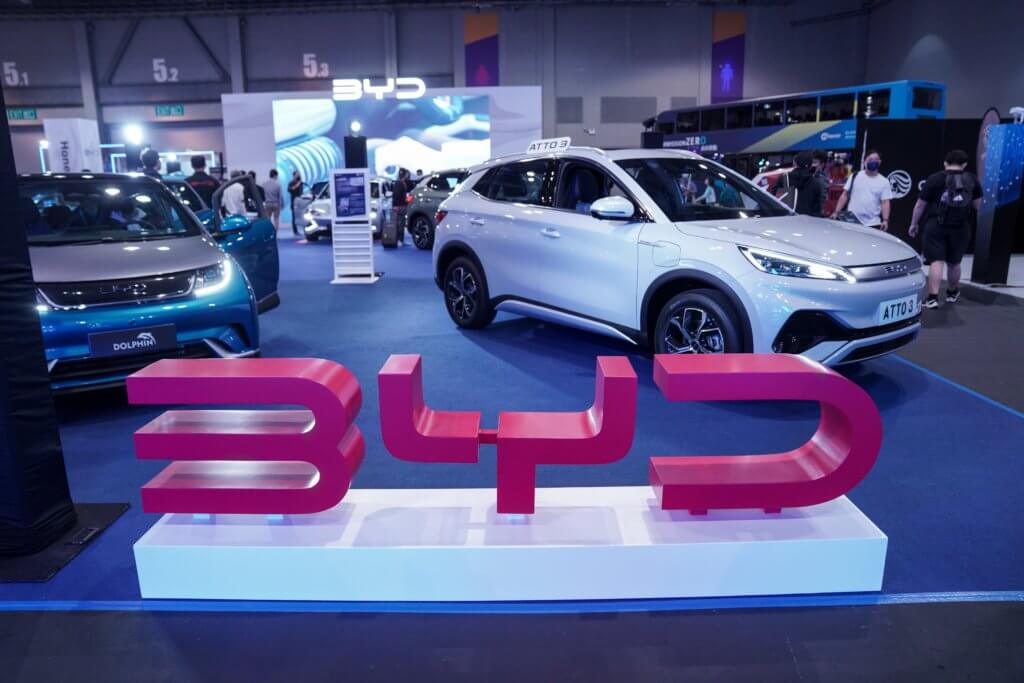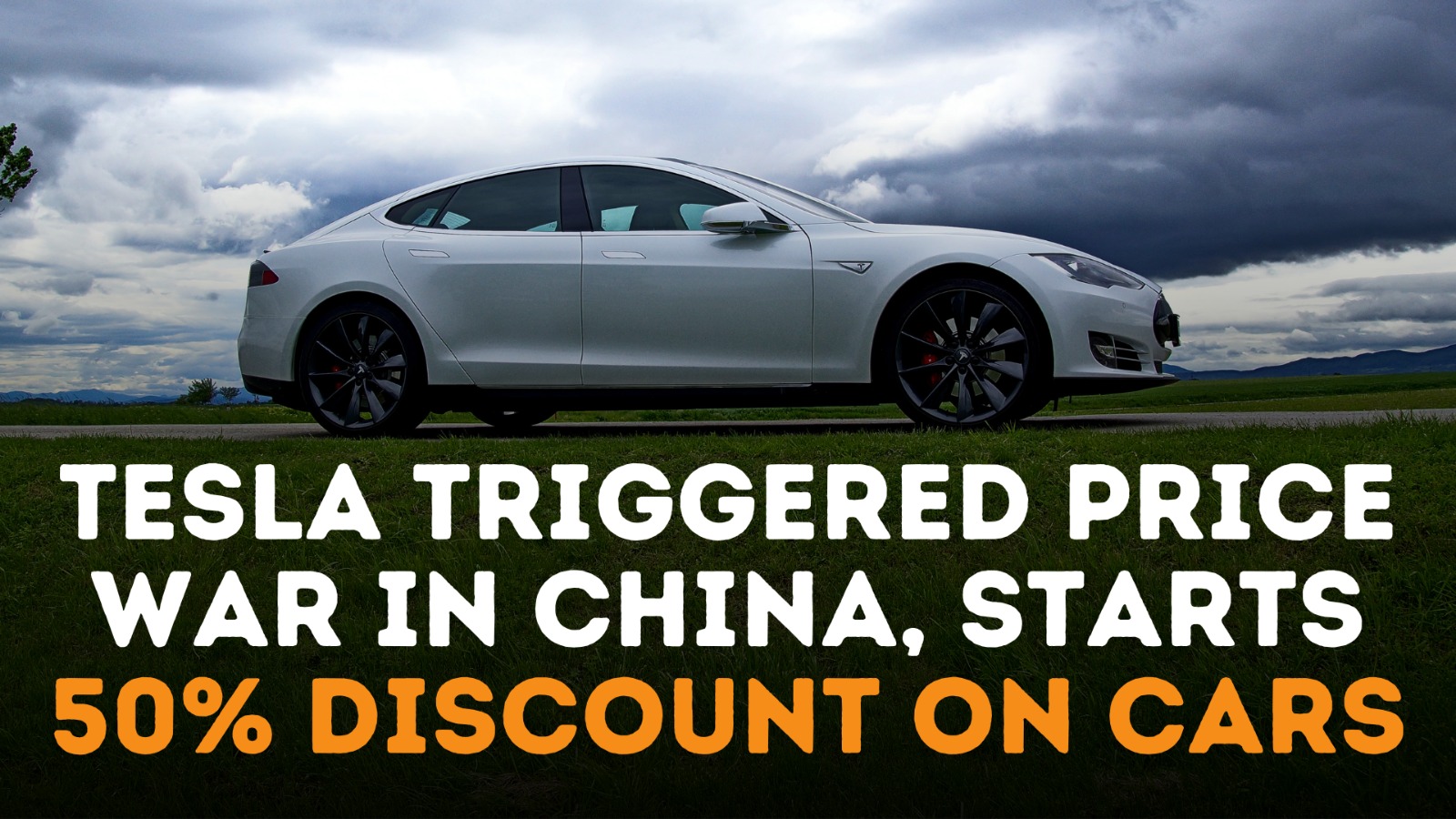Ford Chairman: US Unprepared to Compete with China in EVs; Chinese Market Shifting Away from American Cars, Except for Tesla!
Ford, Chinese automakers are giving US car companies a run for their money, especially as the momentum behind electric vehicles accelerates. Overseas shipments of cars made in China have tripled since 2020 to reach more than 2½ million in 2022, challenging traditional car exporters such as Germany.

Ford Motor executive chairman Bill Ford Jr. acknowledges that the United States is not yet prepared to compete with China in the production of electric vehicles (EVs).
In an interview, Ford emphasized China‘s rapid development and large-scale production of EVs, noting that they are now exporting their vehicles. He believes that China’s presence in the global auto industry has the potential to reshape the market and challenge the dominance of other car trading partners and rivals.
The volume of cars manufactured in China and shipped overseas has significantly increased, reaching over 2.5 million in 2022, triple the number from 2020. This surge in overseas shipments poses a challenge to traditional car exporters like Germany.

In response to this growing trend, Ford announced its plans to invest $3.5 billion in an EV battery plant in Michigan in 2023. However, this decision stirred political controversy due to Ford’s intention to operate the plant with technology and support from China’s Contemporary Amperex Technology.
Addressing the challenge posed by China’s advantage in EV batteries, US Transportation Secretary Pete Buttigieg highlighted the need for the United States to take steps to cut into China’s dominance. Buttigieg stated that building refining capacity for key materials related to EVs is an “addressable” concern.
He emphasized the importance of the US positioning itself to have a sensible and stable approach, considering economic, environmental, and geopolitical factors, as these elements will only grow in importance in the future.
Bill Ford said that recognizes the opportunity for Ford engineers to gain knowledge and understanding of EV technology. Currently, Ford is licensing the technology rather than developing it in-house. Ford believes it is crucial for their engineers to acquire this knowledge so that they can eventually develop their own EV capabilities.
Also, Ford pushed back against the notion that US-based production would lead to higher prices. He argues that manufacturing in America holds significance and that manufacturing jobs have a multiplier effect, contributing to a stronger economy. As production scales up and costs decrease, the overall cost of EVs will also come down.
China Creating Quite A Dent In The EV Market
China’s involvement in the electric car market extends beyond its domestic borders. In Europe, Chinese-made vehicles predominantly consist of electric models from Tesla. Additionally, former European brands such as Volvo and MG, as well as models like Dacia Spring or the BMW iX3, are exclusively produced in China. This further exemplifies China’s growing influence and presence in the electric car industry.
Ford CEO Jim Farley says China’s main EV rival, not GM, Toyota.
Ford Motor Co CEO Jim Farley, a few days back, had stated that Chinese electric vehicle manufacturers are the main competitors in the sector, surpassing General Motors (GM) and Toyota.
At the Morgan Stanley Sustainable Finance Summit, Farley emphasized China’s position as a powerhouse in the global auto market and highlighted its dominance in electric vehicle production. He specifically mentioned BYD, Geely, Great Wall, Changan, and SAIC as successful Chinese automakers.
The Ford Strategy
To overcome competition from Chinese automakers, Farley identified two key strategies for Ford: distinctive branding and lower costs. He expressed confidence in Ford’s unique brand positioning but acknowledged the challenge of competing on cost at a smaller scale compared to Chinese companies.
Farley pointed out that Chinese automakers have gained significant market share in Europe due to their high volume sales and emphasized the need for Ford to address cost competitiveness.
Farley emphasized the importance of battery technology localization in the United States. He warned that if the localization of battery technology becomes entangled in politics, it could adversely affect customers. Ford recognizes the decision that needs to be made regarding the development of battery technology in the US and the potential implications for the market.

All Roads Lead To China
While Ford navigates the challenges in China, General Motors is also facing difficulties in the country, as evidenced by CEO Mary Barra’s recent visit to China amidst a sales slump. In response to the market conditions, Ford implemented cost-cutting measures and restructured its operations in China. The company aims to transform one of its joint ventures into an export hub for affordable commercial electric and combustion vehicles.
Elon Musk, CEO of Tesla, previously praised Chinese automakers for their hard work and intelligence, suggesting that there is a strong possibility that a Chinese company could become the second-largest player in the electric vehicle market, following Tesla’s lead.
China isn’t buying American cars anymore — and it’s bad news for everyone except Tesla.
Chinese automakers are posing a significant challenge to US car companies, particularly as the demand for electric vehicles (EVs) gains momentum. Last year, apart from Tesla, popular US auto brands experienced significant declines in China, which is the world’s largest car market and crucial for manufacturers.
GM’s car sales fell by 20% in 2022, while Ford’s declined by 33.5%, highlighting the changing landscape.
Chinese EV manufacturers have seen a 17% increase in market share in China in 2022, while foreign automakers experienced an 11% drop. Chinese car companies have excelled in building better and more affordable vehicles, particularly EVs, which have attracted eager consumers.

One analyst expressed a widely held belief that US automakers are becoming increasingly irrelevant in China. He emphasized the necessity for GM and Ford to take bold and aggressive steps to find success in the EV transition and urged them to make decisive decisions about their future in the market.
As political tensions between China and the US escalate, operating in China poses more risks for US companies. Additionally, Chinese brands have gained industry know-how through joint ventures with their US counterparts, making the Chinese market a more challenging place for American companies.
As a result, US companies will intensify their efforts in the EV sector within their home market, where they can rely on a more dependable and loyal customer base. However, the ongoing price war initiated by Elon Musk remains a potential obstacle to their plans.
While US companies face challenges in China, there is a glimmer of hope. Automakers have adapted to the pandemic by optimizing their supply chains and focusing on markets that offer the highest profit margins. GM, for instance, has exited money-losing markets such as Europe, Russia, India, and Australia strategically.
Although GM still operates in China, it has struggled to defend its market share, experiencing a 25% sales decline in the first quarter of 2023 after a 20% retreat last year.
However, relying solely on the US market could be risky for US car companies. Compensating for the losses in China by expanding in Europe might not be a feasible option, as Chinese automakers are already aggressively pursuing the European market, intensifying the competition.
The Last Bit, Although there are no Chinese car brands currently available for sale in the US, there is concern that Chinese automakers might eventually make a move to disrupt the US market. Bill Russo, CEO of Automobility, aptly stated that what happens in China will not remain confined to China, indicating the potential global impact of Chinese automakers’ advancements.






